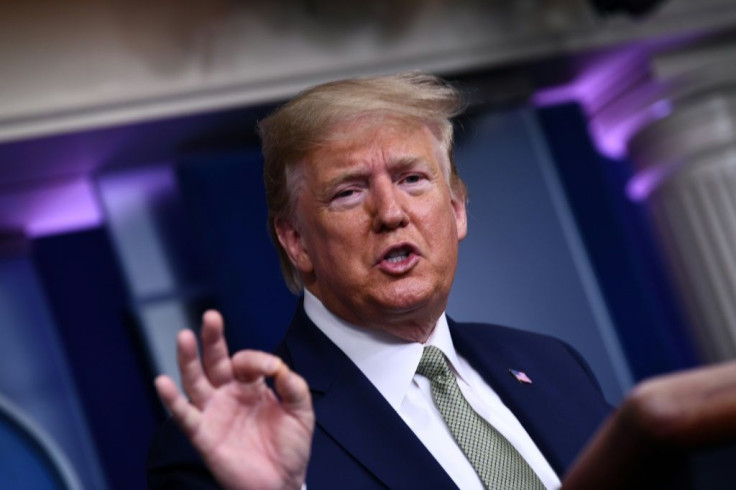Can Trump Actually Withhold WHO Funding? Echoes Of Ukraine Scandal

KEY POINTS
- Democrats have blasted Trump's cuts to the WHO as "illegal"
- Trump likely does not have legal authority to unilaterally cut funds
- Last year, scandal erupted after Trump similarly tried to withhold funds to Ukraine
After floating the idea last week, President Donald Trump announced Tuesday that he would be seeking to withhold funding to the World Health Organization (WHO), stunning world leaders and Americans alike. But the question remains: Does Trump actually have the authority to unilaterally cut funding to the WHO? In key ways, the coming showdown over these funds echo the Ukraine scandal and the impeachment.
On Wednesday, Speaker of the House Nancy Pelosi, D-Calif., said that Trump’s decision to cut funding to the WHO is “dangerous, illegal and will be swiftly challenged.”
Trump and some Republicans have accused the WHO of failing to manage the coronavirus outbreak response appropriately and said it should face repercussions as a result. They have also suggested that leadership within the WHO has taken a political stance, favoring the Chinese government.
The Trump administration has come under fire in past weeks when critics said that the government was slow to take action to curb the spread of the coronavirus. Now, many have claimed that the push to cut WHO funding is an attempt to shift that blame elsewhere.
Regardless, Trump has now set himself up for a major battle that he isn’t likely to win – a lesson he should have learned over the past year.
While the articles of impeachment filed against Trump last year included obstruction of justice, the scandal was originally borne out of the president’s attempt to illegally withhold foreign aid allocated to the Ukrainian government.
Trump had faced allegations that he had sought to withhold money set aside by Congress in return for a Ukrainian investigation into his political opponents. This turned into a scandal that, at its core, was a test of the president’s authority to unilaterally control the use of taxpayer dollars already set aside by a vote in Congress.
Ultimately, although Trump was eventually acquitted of these charges, the funding in question was disbursed to Ukraine.
In many ways, Trump is retreading familiar ground in his intent to cut funding to the WHO – funding that was allocated by Congress. Perhaps the biggest difference here is that Trump is not going forward with this behind closed doors, instead boldly announcing his plans during a White House press conference this week.
Democrats in Congress, like Pelosi, are undoubtedly preparing to dig their heels in over these cuts with the knowledge that Trump has little legal ground to stand on.
The United States is the largest financial contributor to the WHO, having given $893 million to the United Nations group over 2018 and 2019.
© Copyright IBTimes 2025. All rights reserved.






















